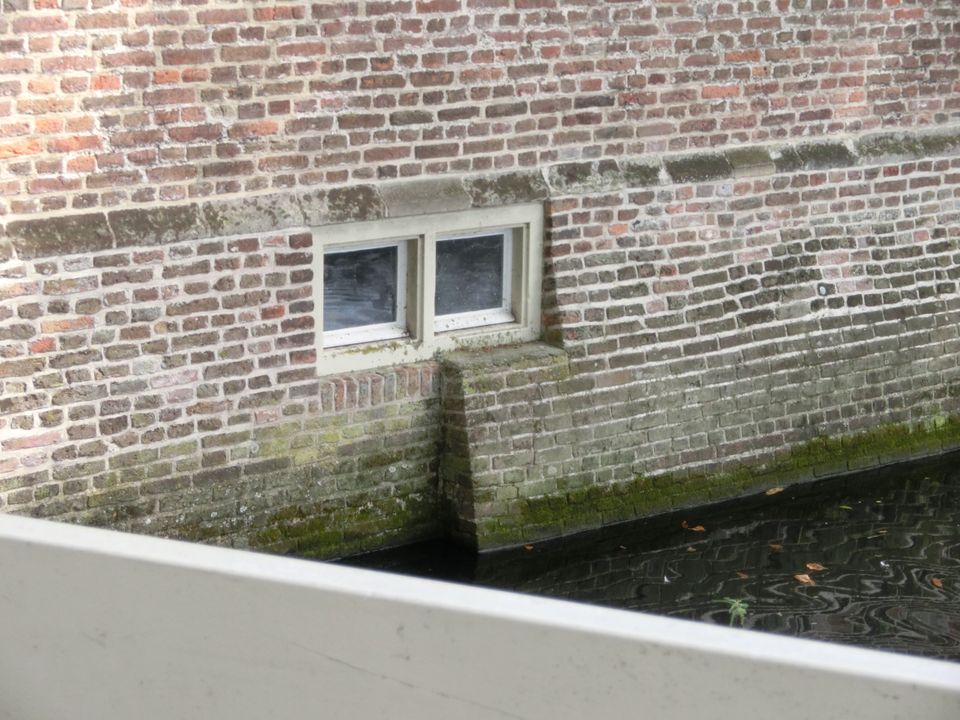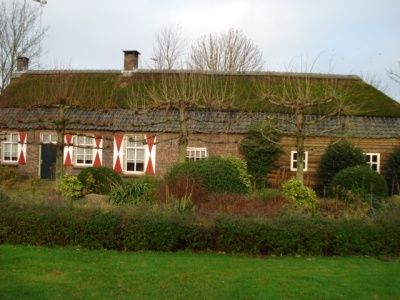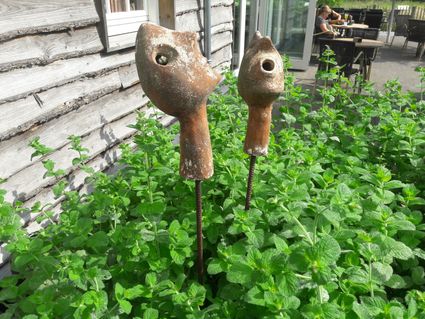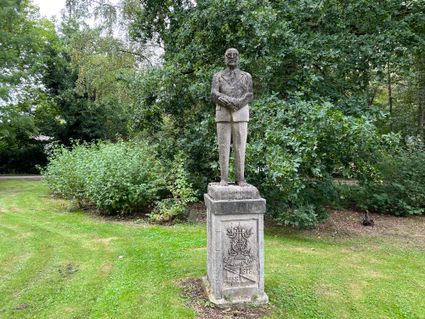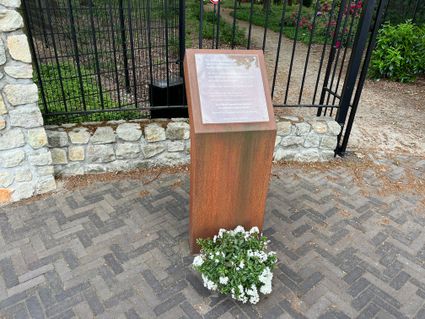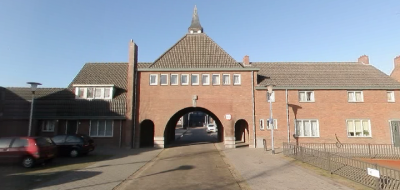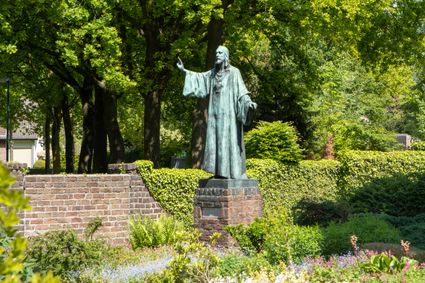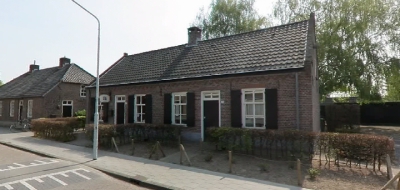11 Kerker
11. Near the castle
1500-1808
Sighing in the dungeon
Sometimes for months, on water and bread, with a square decimeter of daylight as the only clue as to day or night, boredom mixes with fear. In winter, the dungeon floor is often flooded, the cold creeps into your bones.
Who have sat in this dark den over the centuries? What have they done wrong? Some of the long line of unfortunates ...
Poaching was considered a hefty crime in the 16th century, at least by the commander of Gemert. Gherit, the son of Loij van Nunhem, can tell you all about it. He sighed for months in this gevenckenisse op ten huijs van Gemert, just because he had snared a few rabbits.
From rabbits it is a s…
11. Near the castle
1500-1808
Sighing in the dungeon
Sometimes for months, on water and bread, with a square decimeter of daylight as the only clue as to day or night, boredom mixes with fear. In winter, the dungeon floor is often flooded, the cold creeps into your bones.
Who have sat in this dark den over the centuries? What have they done wrong? Some of the long line of unfortunates ...
Poaching was considered a hefty crime in the 16th century, at least by the commander of Gemert. Gherit, the son of Loij van Nunhem, can tell you all about it. He sighed for months in this gevenckenisse op ten huijs van Gemert, just because he had snared a few rabbits.
From rabbits it is a small step to hare's legs. Indeed, in 1559 three people were detained here at the same time, the three of them nicknamed the Hasepoeten. One of the three was so injured during his arrest that he died in prison here. Ah, perhaps that was a merciful death, for the other two Hasepoeten were beheaded with the sword on the gallows field near Milschot.
Pauwels Thomas, the sheriff of Aarle, Rixtel and Beek, experienced in 1597 what he usually did to others: being thrown into the dungeon. This happened in the context of the Strijd om de Snelle Loop, a quarrel that got out of hand between Gemert on the one hand and Aarle, Rixtel and Beek on the other. It was about the maintenance of the border river Snelle Loop and about the schutsom for cattle that had crossed. It resulted in pure enmity for a century. Halfway through the battle, Gemert won a trial on the issue in Brussels before the Council of Brabant. Pauwels Thomas, despite being of the opposing party, also received an invitation to the feast, which was held in the Ridderzaal, the room above the dungeon. There Pauwels, in that difficult situation for him, drank too many glasses of wine, then in an inebriated state began to say all sorts of nasty things to the commander and was therefore dragged down the stairs by two sturdy gatekeepers and thrown into the dungeon.
In 1665 Huibert, the son of Jacop Elsen was imprisoned here. A young fellow still, who had been foolish enough to molest Gemert's pastor, German Order priest Christiaan Wessens. In early July, Huibert had then spent a month and a half in the dungeon, the vierschaar was strained. Near the Hameij, the iron gateway to the castle avenue, stood the dingbank. Besides the seven aldermen, there was also the bailiff, who delicately reminded Huibert that in Italy a similar case had led to condemnation to the gallows! And after the sentence was carried out, things did not get much better.
‛Then fall ye into the excommunication which can be lifted only by the pope himself.
In 1672, the sentence for Cornelis Jochems, because of a horse theft, was: flogging, branding, and banishment for 25 years. Nevertheless, when Cornelis returned after only two years to take revenge, he was again arrested and sentenced to the coorde, i.e., hanging. The dungeon was therefore at times also a death cell.
Joannes Valkenburg from Roggel near Roermond closes the row. He had left his home town in the first days of the year 1808, fearing conscription and thus conscription into the French army, but was arrested in Gemert. He was held for only a few hours, for the jailer who had locked up the deserter on the evening of Jan. 9 found the dungeon empty the next morning. "Escaped through a hole in the wall," was the official reading. But understanding and sympathy for deserters in the French Era sometimes kept the doors unlocked.
